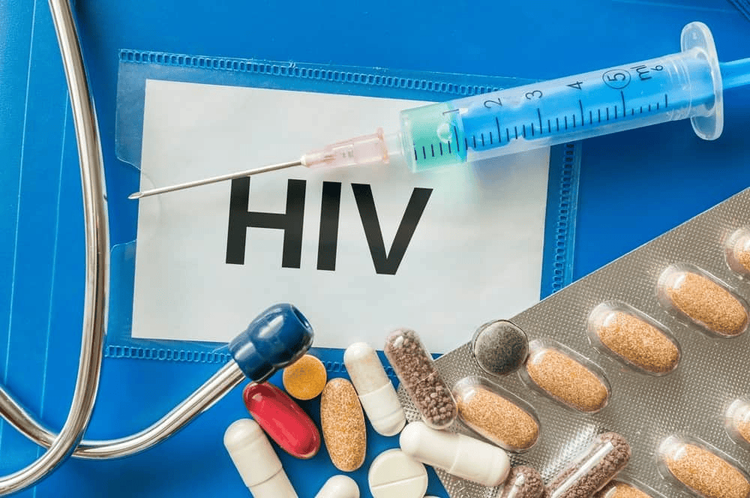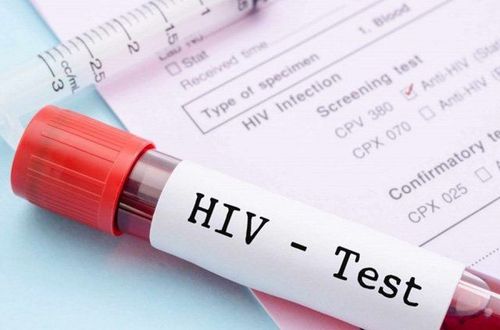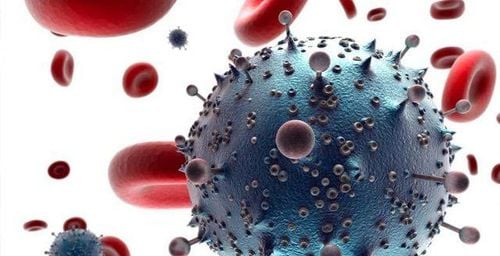This is an automatically translated article.
HIV is a virus that causes a weakened immune system in humans, creating opportunities for other infections to enter the body, putting people with HIV at risk of death. So how does HIV form and develop in the body, how many natural stages of HIV infection are there?1. How did HIV form and develop?
How did HIV form? The HIV virus enters the body, attacking white blood cells in the body's immune system called CD4 cells.
HIV virus cannot grow or reproduce on its own when entering the body, the HIV virus attaches itself to CD4 and then fuses with it. HIV uses the genetic material of white blood cells to multiply, multiply, and multiply, and so on. CD4 cells have the function of fighting pathogens for the body. But when CD4 cells are attached to the HIV virus, they weaken the body's natural defenses and over time severely damage the immune system.
How does HIV develop? The HIV virus grows quickly or slowly also depends in part on the health status of the infected person as well as how early or late the infected person is diagnosed and treated. At the same time, it also depends on whether the infected person's treatment is regular or not.
After testing positive for HIV, the most important thing for an infected person is to start antiretroviral treatment as soon as possible.

Virus HIV phát triển nhanh hay chậm còn phụ thuộc vào việc điều trị của người bệnh có được thường xuyên không
2. Milestones of HIV infection and development
Treatment with antiretroviral drugs in combination with some other drugs will depend on each stage of HIV development to achieve the best effect.
If used correctly, it will help ensure the immune system, prevent the risk of progressing to AIDS and prolong the life of people infected with the virus.
If the treatment is not correct, the person's body can become infected with a drug-resistant virus. At this time, antiviral drugs cannot stop the growth of the virus in the human body.
What are the natural stages of HIV infection? HIV progresses through the following stages:
The window period This is the time period between possible exposure to HIV and when the test will give an accurate result. During the "window period" a person can be infected with HIV and be contagious, but the HIV test result may still be negative.
An antigen or antibody test can be performed at 4 weeks post-infection. At this point, about 95% of infections will be detected. To get a more accurate HIV test result, you can have an additional HIV test 3 months later. When performing the test at this time, the accuracy of the results reaches more than 99.9%.
HIV antibody responses are detected as early as two weeks in some subjects and more than 99.9% of the remaining are detected 12 weeks later. By performing an antibody test after 4 weeks, 95% of infections will be detected.
It is necessary to take the test at 12 weeks after exposure to the virus because during the window period, false negative results can occur.

Ở thời kỳ “cửa sổ”, kết quả xét nghiệm HIV ở người bệnh có thể vẫn là âm tính
Phase of transformation and integration Once inside a white blood cell, HIV uses the genetic material of these white blood cells to multiply and control the white blood cell so that the white blood cell not only doesn't work. fulfill its mission, to destroy the HIV virus but also to be controlled and destroyed by HIV.
Proliferation and replication phase The more white blood cells are destroyed, the more HIV virus is in the cell. The body's immune system is weakened and gradually the human body is no longer protected.
Maturation and Dispersal Stages HIV copies enter the circulatory system, where they attach to other white blood cells and multiply unceasingly. And so the process of HIV production in the body continues, white blood cells decrease, the number of viruses in the body increases rapidly, the risk of transmitting the virus to others also increases.
In summary, the HIV virus can be transmitted at any stage of HIV infection. This virus will gradually destroy the body's immune system. Therefore, early treatment and prevention of HIV infection are very important.
Please dial HOTLINE for more information or register for an appointment HERE. Download MyVinmec app to make appointments faster and to manage your bookings easily.
Reference source: Avert












